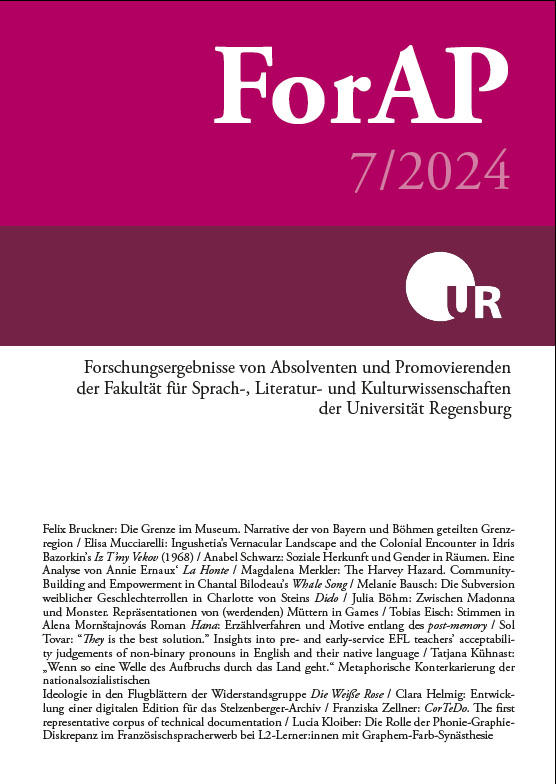“They is the best solution.” Insights into pre- and early-service EFL teachers’ acceptability judgements of non-binary pronouns in English and their native language
Abstract
Discussions around the use of gender-neutral language, with all the different strategies that it entails, have extended beyond academic contexts to permeate everyday life. It has become a contentious topic in many countries, regardless of their language. While existing research predominantly focuses on the usage of gender-neutral language by native (L1) speakers, little attention has been given to non-native (LX) speakers. The present article explores the perceptions of non-native pre-service and early-service English as a Foreign Language (EFL) teachers in Germany and Argentina regarding the use of singular they and neopronouns in English. Additionally, it investigates their views on analogous structures in their native languages (German and Spanish) and compares the degree to which these forms are integrated into their linguistic repertoire. Based on their acceptability judgements of English, German and Spanish sentences, as well as on their justifications of their judgements, this study aims to discern whether differences exist in how non-native EFL teachers evaluate the acceptability of gender-neutral or non-binary forms in both language pairs (English-German and English-Spanish). A qualitative analysis of their justifications offers valuable insights into the knowledge and acceptance of gender-neutral forms in both their L1 and English as well as their willingness to teach these forms in class.



